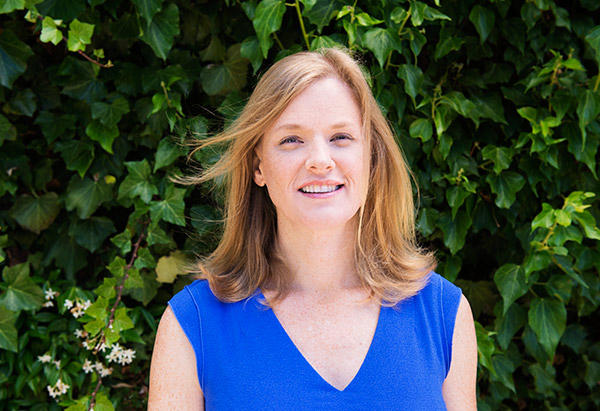Can You See The Real Me? Vivienne Ming's Incredible Story of Self-Discovery

Photo: Jessica Todd Harper
Imagine being trapped in a life you don't want, a fate you can't change. Imagine people deciding who you are with a glance—and getting it wrong, every time. Imagine knowing you could be so much more if only you had the chance. Now imagine you get that chance—and you might begin to understand the life, and work, of Vivienne Ming.
The first thing you notice about Vivienne Ming, PhD, is the way she notices you: Her gaze is appraising, curious. Her eyes appear to shift in color from sapphire to silver. At 41 she's extensively freckled, with the oversize ears of an adolescent. Her sharp cheekbones bookend her assertive nose and shade her easy smile.
Ming's penny-colored hair hangs limp and, in the morning, shower-damp, gathered in a hasty ponytail or left to dry on the rack of her broad shoulders. Her hands are wide and knobby, with long, unvarnished nails. Her bare arms bulge with muscle. There's a white scar at her hairline and a vertical crease between her eyebrows. She wears scant makeup and dresses with the sartorial indifference particular to the three populations she inhabits: science geeks, Bay Areans, suburban moms. Today's look, however, fits her exceedingly well—a Kelly green top and plum skirt that reveal her figure. Later, as she walks down the street, a man will stare.
Ming's hands stir the air when she speaks, which she does in wandering monologues, enunciating prodigiously with a breathy, canyon-deep huskiness. Her eyes telescope with discernible patience when you don't understand something she's just said—which, if you're not a data scientist or a mathematician, is likely to be often.
We are sitting in a sparse conference room nearly a dozen floors above downtown San Francisco, where Ming is describing her work while eating macarons from the fancy restaurant up the street, cracking jokes about her nerdiness, and glancing all the while into the Google Glass attached to her head—the wraparound apparatus, with its brushed steel and occluding square prism, makes her look like a welder from space—through which text messages are being transmitted directly into her field of vision.
The conference room belongs to Gild, a company that aims to revolutionize Silicon Valley's recruiting methods with complex algorithms refined by Ming, Gild's chief scientist. Ming came to Gild because she believes that the tech world's hiring criteria are needlessly—and detrimentally—exclusionary. "There's a philosophy among these companies," she explains, "that says, 'Only hire the best! One bad hire and you've wrecked your company!'" But a deluge of résumés courses through the Googles and Facebooks of the world, and sifting through them for gems would be absurdly inefficient. Thus, acquiring "the best" has meant fishing the elite pond of Stanford and MIT grads or buying out companies to acquire their talent. In other words, if a programmer isn't enrolled in one of a handful of prestigious universities or already in the tech game, he or she is shut out of the running entirely. That's the scenario Gild hopes to change. "We don't much care where you went to school or where you've worked," says Ming. "What we care about is, are you good at the thing you want to do? And if you are, let's help you find your dream job."
Gild aims for meritocracy in a world where it's often hard to come by—a situation to which Ming is particularly attuned. She understands the torment of being unable to fulfill your potential, of watching as something beyond your control compresses your destiny. She's passionate about her work in part because it's personal to her—as personal as her own skin, her own face, her own life.
Next: The moment she realized something was wrong



